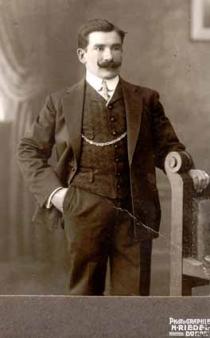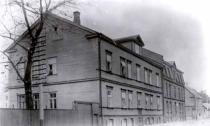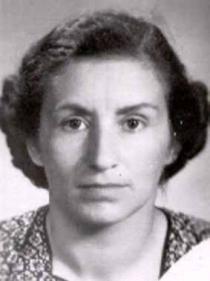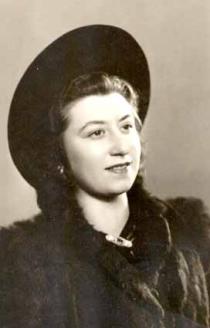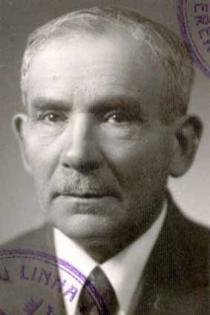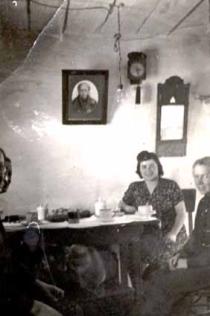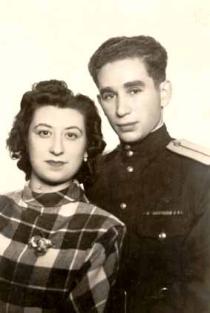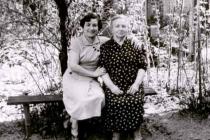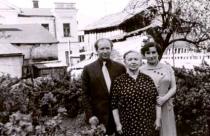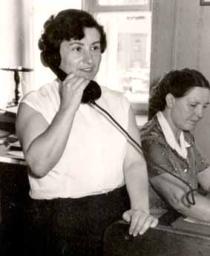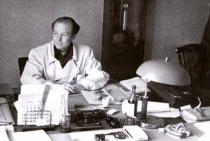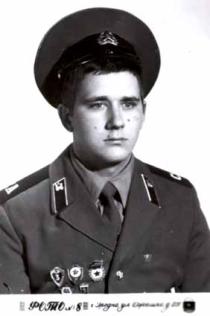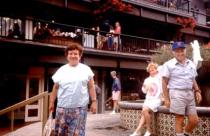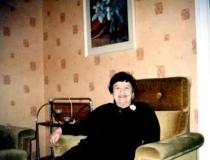This is me at work. My co-worker photographed me. I was the logistics manager of the shoe and leather factory. This photo was taken in Tartu in 1967.
When my mother returned to Tartu after the war, she found other tenants in the apartment where we had lived before the war. Our belongings were gone. My mother lived in a smaller apartment in the same building where we had lived before the war. This was the very apartment she had lived in after her marriage. I lived with her. I worked at the shoe factory, in the logistics department. I was an accountant and was later promoted as the logistics manager. My Russian language skills helped me with my work. I could also handle Russian documentation. There were few Jews in our department.
In the 1970s mass Jewish emigration to Israel began. Many of my friends and relatives moved and I sympathized with them though I was happy to hear that their life was improving in the new location, but I never considered departure. I was alone and had no husband or children. Why would I depart? I had relatives and friends here. If I had a family I would have considered relocation, having close people with me. Of course, I had acquaintances in Israel, but I wouldn't necessarily live where they lived. Besides, they had their families and their own lives. So why go to another country? I earned my living here: I had a job, and an apartment. So, I decided against departure.
My brother David's wife tried to convince me to move to Tallinn. I had many friends who had moved there for various reasons. They also told me to move to Tallinn, and finally in 1978 I decided to move here. I traded my apartment in Tartu for one in Tallinn. When I was moving into my apartment in Tartu I promised myself that I would never live in a shared apartment again, but I didn't keep my word. I traded my apartment in Tartu for one room in a two-room apartment in Tallinn. I share this apartment with an elderly lady. She is also single, and we don't disturb one another. This is where I live now.

